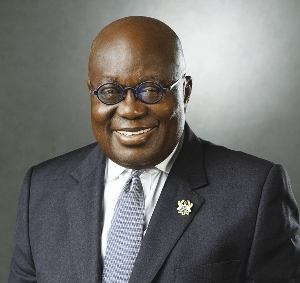Business News of Sunday, 26 April 2020
Source: thebusiness24online.net
Coronavirus: Build robust industry, enforce local buying - Procurement expert
The impact of disruptions to global supply chains will be dire on an import-led Ghanaian economy and government must see that as a learning curve to build local production capacity along with improved local buying, Collins Sarpong Agyemang, President of the Ghana Institute of Procurement and Supply (GIPS), has said.
In an exclusive interview with Business24 detailing the severity of disruptions to the supply side owing to the pandemic, he indicated that government, which is the biggest spender, must be seen as the exemplary force in procuring what is produced locally by home-grown industries.
“Because of the Covid-19 [pandemic], we have been able to look within to start the production of certain basic essential items, such as face masks, sanitisers, and other personal protective equipment, locally.
Should the wearing of face masks become the norm, producers of such items are going to get huge demand and that will be a new avenue for job and wealth creation. That is the kind of support we should be giving to the manufacturing sector even after the pandemic,” he said.
According to the procurement expert, time is ripe for the government to aggressively perk up the patronage and consumption of locally-produced goods to strengthen the capacity of home-made industries who require such support to improve on their competitiveness.
“We have to support local industry and aspire to become self-sufficient so that our economy could still be on its feet should something similar rear its head. We have the capacity to produce the various items being used by frontline workers in the fight against the pandemic, such as the gloves, syringes, ventilators and all, but usually, they won’t be patronised because people prefer [the] same items that are imported from either China or UK,” Mr. Agyemang noted.
To him, the worst-affected economies by the coronavirus crisis are those that were highly dependent on supplies from China, and he wondered how they would cope as long as the Asian country kept its borders closed.
“Have you wondered why China is delaying in opening its borders? It’s because they have the capacity to produce to feed themselves for even up to a year amid the pandemic.
Should they continue like this, what then happens to import-led economies, including us [Ghana] that import about 85 percent of what is consumed locally? It is obvious that the time to prioritise local production and consumption is now,” he said to buttress his argument.
He added: “The economy is all about demand and supply, and to aid its revival amid the pandemic, procurement and supply chain professionals with the requisite know-how must be recognised, brought to the decision table, and given the right support that will help to bring their expertise to bear.”













